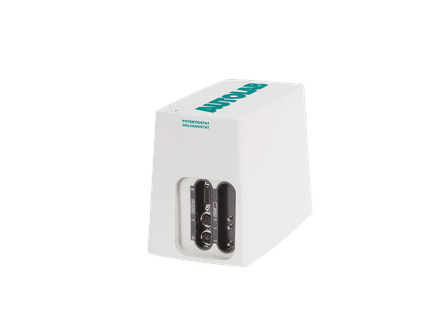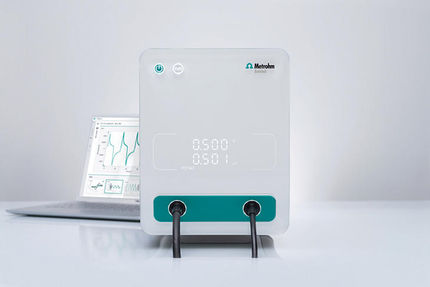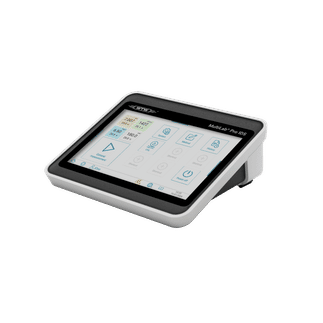Thiopurine methyltransferase
| Thiopurine S-methyltransferase
|
|
|
| PDB rendering based on 2bzg.
|
| Available structures: 2bzg, 2h11
|
| Identifiers
|
| Symbol(s)
| TPMT;
|
| External IDs
| OMIM: 187680 MGI: 98812 Homologene: 313
|
| Gene Ontology
|
| Molecular Function:
| • thiopurine S-methyltransferase activity
• methyltransferase activity
• transferase activity
|
| Cellular Component:
| • cytoplasm
|
| Biological Process:
| • nucleobase, nucleoside, nucleotide and nucleic acid metabolic process
• metabolic process
|
|
| RNA expression pattern
|
|
More reference expression data
|
| Orthologs
|
|
| Human
| Mouse
|
| Entrez
| 7172
| 22017
|
| Ensembl
| ENSG00000137364
| ENSMUSG00000021376
|
| Uniprot
| P51580
| O55060
|
| Refseq
| NM_000367 (mRNA)
NP_000358 (protein)
| NM_016785 (mRNA)
NP_058065 (protein)
|
| Location
| Chr 6: 18.24 - 18.26 Mb
| Chr 13: 47.04 - 47.05 Mb
|
| Pubmed search
| [1]
| [2]
|
Thiopurine methyltransferase or thiopurine S-methyltransferase (TPMT) is an enzyme (EC 2.1.1.67) that methylates thiopurine compounds. The methyl donor is S-adenosyl-L-methionine, which is converted to S-adenosyl-L-homocysteine.
This gene encodes the enzyme that metabolizes thiopurine drugs via S-adenosyl-L-methionine as the S-methyl donor and S-adenosyl-L-homocysteine as a byproduct. Thiopurine drugs such as 6-mercaptopurine are used as chemotherapeutic agents. Genetic polymorphisms that affect this enzymatic activity are correlated with variations in sensitivity and toxicity to such drugs within individuals. A pseudogene for this locus is located on chromosome 18q.[1]
Pharmacology
TPMT is best known for its role in the metabolism of the drugs 6-mercaptopurine, azathioprine and 6-thioguanine. TPMT catalyzes the S-methylation of thiopurine drugs, including 6MP. Defects in the TPMT gene leads to decreased methylation and decreased inactivation of 6MP leading to enhanced bone marrow toxicity. [2]
Diagnostic use
Measurement of TPMT activity is encouraged prior to commencing azathioprine or 6-mercaptopurine, as patients with low activity (10% prevalence) or especially absent activity (prevalence 0.3%) are at a heightened risk of drug-induced bone marrow toxicity due to accumulation of the unmetabolised drug. Reuther et al found that about 5% of all thiopurine therapies will fail due to toxicity. This intolerant group could be anticipated by routine measurement of TPMT activity. There appears to be a great deal of variation in TPMT mutation, with ethnic differences in mutation types accounting for variable responses to 6MP[3].
References
- ^ Entrez Gene: TPMT thiopurine S-methyltransferase.
- ^ Pharmacogenomics in Drug-Metabolizing Enzymes Catalyzing Anticancer Drugs for Personalized Cancer Chemotherapy. Ken-ichi Fujita,; Yasutsuna Sasaki, Current Drug Metabolism, Volume 8, Number 6, August 2007 , pp. 554-562(9)
- ^ http://genome.ucsc.edu/cgi-bin/hgGene?hgg_gene=uc003ncm.1&hgg_prot=P51580&hgg_chrom=chr6&hgg_start=18236523&hgg_end=18263353&hgg_type=knownGene&db=hg18&hgsid=97455887
Further reading
- Reuther LO, Vainer B, Sonne J, Larsen NE. Thiopurine methyltransferase (TPMT) genotype distribution in azathioprine-tolerant and -intolerant patients with various disorders. The impact of TPMT genotyping in predicting toxicity. Eur J Clin Pharmacol 2004;59:797-801. PMID 14634700.
- Krynetski EY, Tai HL, Yates CR, et al. (1997). "Genetic polymorphism of thiopurine S-methyltransferase: clinical importance and molecular mechanisms.". Pharmacogenetics 6 (4): 279-90. PMID 8873214.
- Krynetski E, Evans WE (2003). "Drug methylation in cancer therapy: lessons from the TPMT polymorphism.". Oncogene 22 (47): 7403-13. doi:10.1038/sj.onc.1206944. PMID 14576848.
- Corominas H, Baiget M (2004). "Clinical utility of thiopurine S-methyltransferase genotyping.". American journal of pharmacogenomics : genomics-related research in drug development and clinical practice 4 (1): 1-8. PMID 14987117.
- Krynetskiy EY, Evans WE (2005). "Closing the gap between science and clinical practice: the thiopurine S-methyltransferase polymorphism moves forward.". Pharmacogenetics 14 (7): 395-6. PMID 15226671.
- Coulthard SA, Matheson EC, Hall AG, Hogarth LA (2005). "The clinical impact of thiopurine methyltransferase polymorphisms on thiopurine treatment.". Nucleosides Nucleotides Nucleic Acids 23 (8-9): 1385-91. PMID 15571264.
- Lee W, Lockhart AC, Kim RB, Rothenberg ML (2005). "Cancer pharmacogenomics: powerful tools in cancer chemotherapy and drug development.". Oncologist 10 (2): 104-11. doi:10.1634/theoncologist.10-2-104. PMID 15709212.
- Pierik M, Rutgeerts P, Vlietinck R, Vermeire S (2006). "Pharmacogenetics in inflammatory bowel disease.". World J. Gastroenterol. 12 (23): 3657-67. PMID 16773681.
- Lee D, Szumlanski C, Houtman J, et al. (1995). "Thiopurine methyltransferase pharmacogenetics. Cloning of human liver cDNA and a processed pseudogene on human chromosome 18q21.1.". Drug Metab. Dispos. 23 (3): 398-405. PMID 7628307.
- Krynetski EY, Schuetz JD, Galpin AJ, et al. (1995). "A single point mutation leading to loss of catalytic activity in human thiopurine S-methyltransferase.". Proc. Natl. Acad. Sci. U.S.A. 92 (4): 949-53. PMID 7862671.
- Honchel R, Aksoy IA, Szumlanski C, et al. (1993). "Human thiopurine methyltransferase: molecular cloning and expression of T84 colon carcinoma cell cDNA.". Mol. Pharmacol. 43 (6): 878-87. PMID 8316220.
- Glauser TA, Nelson AN, Zembower DE, et al. (1993). "Diethyldithiocarbamate S-methylation: evidence for catalysis by human liver thiol methyltransferase and thiopurine methyltransferase.". J. Pharmacol. Exp. Ther. 266 (1): 23-32. PMID 8392551.
- Szumlanski C, Otterness D, Her C, et al. (1996). "Thiopurine methyltransferase pharmacogenetics: human gene cloning and characterization of a common polymorphism.". DNA Cell Biol. 15 (1): 17-30. PMID 8561894.
- Tai HL, Krynetski EY, Yates CR, et al. (1996). "Thiopurine S-methyltransferase deficiency: two nucleotide transitions define the most prevalent mutant allele associated with loss of catalytic activity in Caucasians.". Am. J. Hum. Genet. 58 (4): 694-702. PMID 8644731.
- Yates CR, Krynetski EY, Loennechen T, et al. (1997). "Molecular diagnosis of thiopurine S-methyltransferase deficiency: genetic basis for azathioprine and mercaptopurine intolerance.". Ann. Intern. Med. 126 (8): 608-14. PMID 9103127.
- Tai HL, Krynetski EY, Schuetz EG, et al. (1997). "Enhanced proteolysis of thiopurine S-methyltransferase (TPMT) encoded by mutant alleles in humans (TPMT*3A, TPMT*2): mechanisms for the genetic polymorphism of TPMT activity.". Proc. Natl. Acad. Sci. U.S.A. 94 (12): 6444-9. PMID 9177237.
- Otterness D, Szumlanski C, Lennard L, et al. (1997). "Human thiopurine methyltransferase pharmacogenetics: gene sequence polymorphisms.". Clin. Pharmacol. Ther. 62 (1): 60-73. doi:10.1016/S0009-9236(97)90152-1. PMID 9246020.
- Leipold G, Schütz E, Haas JP, Oellerich M (1997). "Azathioprine-induced severe pancytopenia due to a homozygous two-point mutation of the thiopurine methyltransferase gene in a patient with juvenile HLA-B27-associated spondylarthritis.". Arthritis Rheum. 40 (10): 1896-8. doi:<1896::AID-ART26>3.0.CO;2-A 10.1002/1529-0131(199710)40:10<1896::AID-ART26>3.0.CO;2-A. PMID 9336428.
- Krynetski EY, Fessing MY, Yates CR, et al. (1998). "Promoter and intronic sequences of the human thiopurine S-methyltransferase (TPMT) gene isolated from a human PAC1 genomic library.". Pharm. Res. 14 (12): 1672-8. PMID 9453052.
- Spire-Vayron de la Moureyre C, Debuysère H, Sabbagh N, et al. (1998). "Detection of known and new mutations in the thiopurine S-methyltransferase gene by single-strand conformation polymorphism analysis.". Hum. Mutat. 12 (3): 177-85. doi:<177::AID-HUMU5>3.0.CO;2-E 10.1002/(SICI)1098-1004(1998)12:3<177::AID-HUMU5>3.0.CO;2-E. PMID 9711875.
|







